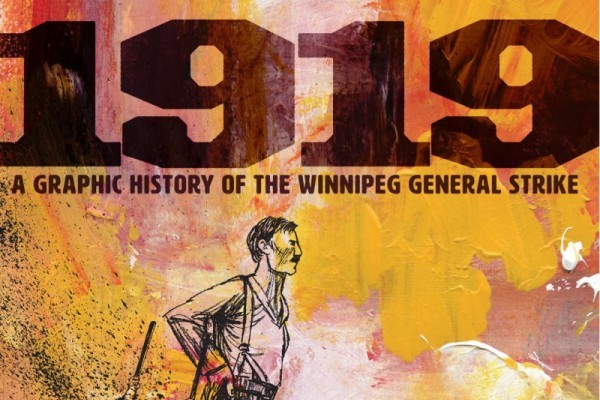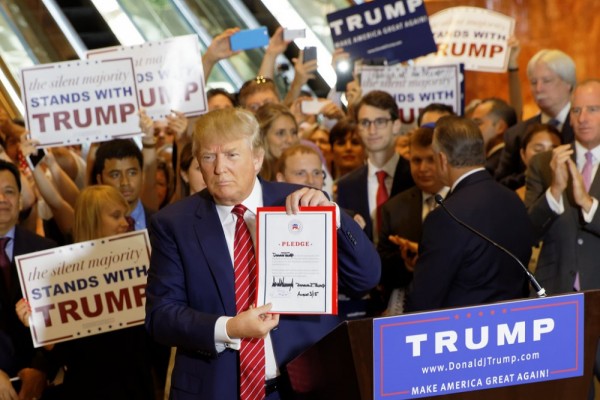Rebel Yells
Music in itself is of little direct political value to progressive forces. It organizes no one. It is poor defense against bullets and truncheons.
However, it does affect what people talk about. What’s your favourite anti-war protest song? Anthemic songs (like Ralph Chaplin’s “Solidarity Forever,” or “Red River Valley” during the Spanish Civil War) can help activists remember that we started out to drain the swamp. Even celebrity can have momentary political value, as the vocal responses of Celine Dion and Kanye West to the recent neglect of New Orleans testify. At the very least, the content of popular music is a weather vane of social concern and the state of ideological hegemony.
Thomas Bartlett, writing for Salon.com toward the close of 2004, observed that, “In a year of such intense political polarization, so much anger and activism, it’s surprising that popular music has withdrawn into relative conservatism.” Also in 2004, however, Bono took time away from chumming with state elites to tell us How to Dismantle an Atomic Bomb (Interscope). Montreal’s acclaimed Arcade Fire appealed for democracy in Haiti on Funeral (Merge/Rough Trade). Green Day was sometimes brilliant in its critique of American culture on American Idiot (Reprise). Eminem (Encore) and the Beastie Boys’ To The 5 Boroughs (Capitol) each took its whack at Iraq. Morrissey’s You Are the Quarry (Attack) attacked Americans as a bunch of pigs. The Living Things remembered the history of oil cartels on Black Skies in Broad Daylight (Loog/Dreamworks). Eagle & Hawk celebrated the survival of Canadian Aboriginal peoples on Mother Earth (Rising Sun) and, with “Indian City,” indelibly seared into our consciousness the deplorable conditions of many indigenous peoples living in urban areas. Mike Ladd contributed postcolonial critique to experimental jazz with Negrophilia - The Album (Thirsty Ear Records). The Manic Street Preachers’ Lifeblood (Sony) reminded us that there was a time before neoliberalism and its mean-spirited atomism. With “Who Is This America Dem Speak of Today?” and “Big Man” - among other politically charged tracks on their album Who Is This America? (Ropeadope) - the Afrobeat orchestra Antibalas has created some of the most revolutionary lyrical content available in North America today.
Further, the albums profiled at the end of this article that accompany this article may ultimately have more impact on a broader audience than most.
Contrary to Bartlett, then, we appear to have entered a renaissance of broadly oppositional popular music unseen since the creation of punk during neoliberalism’s infancy. This upsurge in politically progressive popular music is analogous to a recent increase in socially critical documentary film.
Beyond Gangsta
One of last year’s partial exceptions to the gangsta mainstream was Kanye West’s multiple Grammy Award-winning debut, College Dropout (Roc-A-Fella, 2004). “Racism’s still alive/ They just be concealing it,” West proclaimed on “Never Let You Down,” sometime prior to his well known reflections on Hurricane Katrina recovery efforts. In the first real song on the album, “We Don’t Care,” West explores an ironic privilege offered many Blacks. Social conditions still prevail in many Black communities where “We wasn’t supposed to make it past 25.” However, the fact of survival in the context of often deadly social conditions helps provide a certain liberty for Black people to say whatever the hell they want, without fear. West does. The album’s focus on old-school soul, gospel and funk sounds fits thematically with the album’s look at survival, struggle and community.
God is also heavily referenced on a more militant contribution, Saul Williams’ Saul Williams (Sony, 2004), but He’s young and “gay.” While West is very much in company with members of the mainstream hip-hop community, Williams uses slam poetry to confront the genre for no longer meeting the needs it was created to serve, belonging as it now does more to artists interested accumulating personal wealth. In “Telegram,” Williams further challenges rap for reducing its critique to race alone: “It’s bigger than black. So where my aliens at? Girl we’re all illegal. This system ain’t for us. It’s for rich people. And you ain’t rich dawg. You just got money.” “Act III Scene 2 (Shakespeare)” is lyrically rich with complex ideas. Williams addresses Iraq: “It’s just coincidence that oil men would wage war on an oil rich land. And this one goes out to my man. Taking cover in the trenches with a gun in his hand. Then gets home and no one flinches when he can’t feed his fam.” Elsewhere, Williams addresses the effects of internalized racism and also reveals his environmentalist concerns.
Rock ‘n’ Reform
John Fogerty’s title song on Deja Vu All Over Again (Cody River Music/ASCAP, 2004) links the war in Iraq to Vietnam, as another senseless squandering of American lives. Patti Smith’s “Radio Baghdad,” on Trampin’ (Sony, 2004), begins with an ominous bubbling of music and intonation before exploding into a circuitous rock riff with lyrics that refer to the rich culture and history of Iraq: “We invented the zero/ But we mean nothing to you.” Smith spits “shock and awe, shock and awe” with such revolutionary defiance, contempt and passion that the words sound hardly human - perhaps the most intense moment in the music of 2004.
Steve Earle’s “Rich Man’s War” on The Revolution Starts … Now (Artemis, 2004) universalizes his soldier by suggesting that Palestinian suicide bombers, too, are merely acting as instruments of their own bourgeoisie. On “Warrior” Earle inhabits the persona of the god of war and succeeds in disrobing the dialectic of public policy: “Assail me not with noble policy/ For I care not at all for platitude/ Singular in their purpose and resolve/ And presuming to speak for everyman.” And, backed by a string quartet, Earle constructs a critique of U.S. military excursions over time on “The Gringo’s Tale.”
Tom Waits’ Real Gone (Epitaph, 2004) gives voice to a weary soldier yearning to return to the simple, inviting, commonplace comforts of home on the acoustic ballad, “Day After Tomorrow.” The sounds and smells of war also comprise the lifeblood of the anti-imperialist “Hoist That Rag.” On Get EL EL Away From Me (Columbia, 2004), Nellie McKay also debauches the flag icon (“Won’t U Please B Nice”) and engages in a witty feminist critique of an urban professional, patriarchal culture, which may not like Bush’s policies, but which also - in the context of relative privilege - isn’t too prepared to do a helluva lot about them (“Toto Dies,” “Inner Peace”). McKay also blames men for war, implicitly or otherwise (“It’s A Pose,” “Respectable”).
Other albums raise a broader spectrum of political concerns. This Island, by feminist New Wavers Le Tigre (Universal, 2004), contributes the anti-Bush “Seconds”; samples a 2003 antiwar protest, in “New Kicks”; and connects an attack on oil wealth to a demand for universal healthcare and a trial for Henry Kissinger. Bad Religion’s The Empire Strikes First (Epitaph, 2004) questions the value of the war economy for the American populace with “Let Them Eat War,” and raises environmental concerns on “Los Angeles Is Burning,” while also attacking reactionary Catholicism and the politics of Christian fundamentalism. Ted Leo’s highly invigorating antiwar album, Shake the Sheets (Lookout, 2004), also flags the healthcare issue with “Heart Problems,” a class-conscious attack on the big drug companies and the medical establishment.
This article appeared in the January/February 2006 issue of Canadian Dimension (Politics and Religion).










